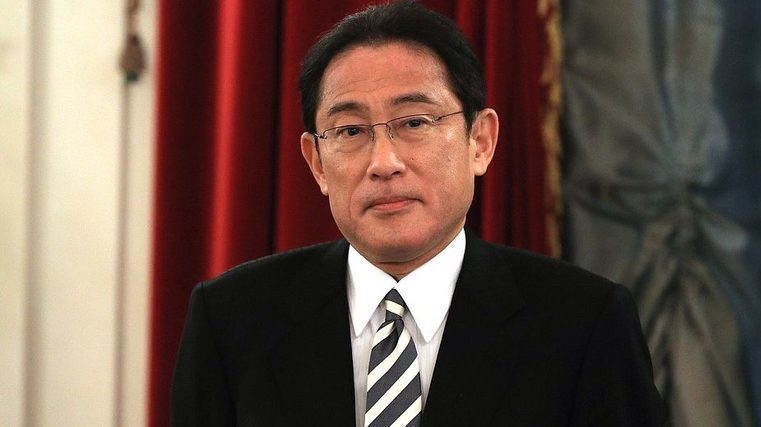Japan may change car taxes

The Japanese government is looking to extend tax breaks on low-emissions vehicles (LEVs) and seek to shift its massive household savings into investment in its annual tax-code revision.
It’s also aiming – in 2025 – to exclude petrol-powered cars from tax cuts granted to Japan’s car industry to assist it in coping with constraints on supply.
In addition, it’s likely to bump up income, corporate and tobacco taxes to fund a scheduled doubling in defence spending to two per cent of GDP by 2027 in response to missile launches by North Korea and China.
Key changes under the revised tax code, which have been timetabled to kick in during the next fiscal year, which starts in April 2023, have yet to be voted on by parliament after being approved by the ruling coalition on December 16.
Cars and taxation
The Japanese government is proposing to extend tax breaks for LEVs past the end of 2023, while increasing the required level of emissions reduction for eligible models in several stages from 2024. The revision, to remain in place until April 2026, will cover half of all new passenger vehicles built, reports Reuters.
The government will also exclude petrol-powered passenger vehicles starting in 2025 from tax cuts that have been awarded to the domestic automotive industry to help it overcome supply constraints.
Vehicle weight tax
Japan’s ruling coalition wants to exclude pure-petrol vehicles irrespective of fuel-economy performance settings in three years’ time.
The ruling coalition is finalising the tightening of rules for eco-cars tax breaks in a bid to accelerate the shift to electric vehicles (EVs) and hybrids in its domestic market.
Reductions in vehicle weight tax (VWT) are currently offered to those that at least partially meet the government’s fuel-economy standard, which is measured by mileage per kilometre of fuel.
The government wants to bring in stricter fuel-economy rules during 2024 until when current regulations will remain in place. This will provide car manufacturers time to adjust in the continuing wake of the global semi-conductor shortage and difficult supply-chain conditions.
The ruling Liberal Democratic Party’s tax panel has presented a final version of the new regulations and they were included in the coalition’s proposed tax reforms presented last week for approval by parliament on December 23.
The current rules mandate that marques’ new vehicles must reach a fuel-economy level of 25.4km/l by 2030. Models that exceed this by 20 per cent will be exempt from the VWT three years after purchase and for the first two car inspections, reports Nikkei Asia.
Models meeting 75 per cent of the fuel-economy target are eligible for a 50 per cent reduction in VWT during the first inspection, which will come three years post-purchase. Vehicles that meet 60 per cent of the target will only be eligible for 25 per cent tax break.
Under the proposed revision, eligibility standards will be tightened from January 2024 with a 50 per cent tax reduction on models hitting at least 80 per cent of the target and a 25 per cent cut for those making it to at least 70 per cent of it. Similar regulations are on the table for diesel-powered vehicles.
The rules will be adjusted by May 2025 with a 50 per cent tax reduction for those that make 90 per cent of the target and one-quarter coming off for those achieving 80 per cent.
Japan has already been aiming for all new vehicles manufactured there to be at least partially electric by 2035.
At the moment, 70 per cent of new vehicles sold in the country qualify for eco-car tax breaks. Under the new rules, only half of the vehicles would qualify for tax breaks.
Bigger picture
Under his flagship “new capitalism” initiative aimed at redistributing income, Prime Minister Fumio Kishida, pictured, has sought to shift Japan’s ¥2 quadrillion – some NZ$22.8 trillion – in household assets away from savings and into investment.
As part of the package, the government will make permanent a programme that offers tax breaks for household stock investments. Specifically, it will triple the limit on investments eligible for breaks from 2024.
The country’s capital-gains rate is uniform across income brackets, unlike Japan’s progressive income tax.
As part of a symbolic effort to tackle disparities, the government will apply an extra tax on 200 to 300 individuals in 2025 earning more than ¥3 billion annually from investments in stocks and real estate.
Kishida’s administration has stressed the need to nurture more start-ups to try to boost economic growth. It will expand preferential tax breaks for retail investors when they buy and sell stocks in start-ups. Profits from selling start-up shares will be exempt from income tax if reinvested in other venture businesses.





